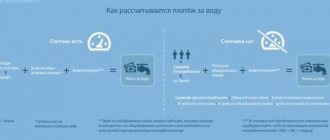Until 2014, fees for major repairs were not charged to owners of apartments in multi-apartment buildings. This obligation arose following amendments to housing legislation. Of course, the additional fee outrages the owners. Moreover, quite often a receipt for a significant amount arrives. Let's figure out whether or not to pay for major repairs of apartment buildings.
In accordance with the provisions adopted in housing legislation, major repairs of residential buildings are carried out at the expense of funds accumulated in the account of the management company. In the future, the collected amount will be spent on paying for repairs and purchasing building materials. At the same time, many citizens refuse such levies and stop paying. Is this legal? Let's try to figure it out.
Is this legal?
Despite the fact that several years have passed since the collection began, doubts about the legality of the decision to pay for capital repairs still remain. Why is this happening?
When speaking about the illegality of collecting funds for this expense item, lawyers refer to tax legislation. It directly states that it is prohibited to introduce additional taxes and fees not provided for by the Tax Code. It still does not contain information about major repairs.
However, these payments are discussed in the provisions of the Housing Code. This becomes the basis for government authorities to assert the legality of the introduced fee.
Despite the obvious ambiguity in the legislation, timely payment of utility bills is the responsibility of homeowners. The contribution for major repairs was introduced by the state. For ignoring this requirement, the authorities charge penalties, force them to pay fees in court, etc.
When property is transferred to a legal successor on the basis of inheritance, donation, purchase and sale or other civil law transactions, the new owner assumes obligations to pay utilities and fees. However, if due to the fault of the previous owner arrears in payments for major repairs were formed, the new owner will have to pay it.
The requirement to make full contributions is generally justified. In houses that have been in service for decades, emergency situations quite often occur - a water pipe break, cracks in the walls and their collapse, etc. To prevent these troubles, regular maintenance is required to take action. Major repairs are not financed from the state or municipal treasury, so apartment owners have to pay for their own safe living.
Specifically, this issue is regulated by the following regulations:
- Art. 169 of the Housing Code of the Russian Federation says that residents must raise money for restoration work and reconstruction of apartment buildings on their own;
- Art. 157.1 of the Housing Code of the Russian Federation states that paying fees to specially formed funds is the responsibility of apartment owners.
Some categories of citizens are exempt from paying for major repairs. We'll talk about benefits and tariffs further.
What happens if you don’t pay for major repairs?
Many citizens do not see the need to pay for major repairs. They believe that investing in the promise of ever improving the technical condition of the house is, to say the least, unreasonable.
Why is this happening? There are several reasons for this:
- Rehabilitation programs for apartment buildings do not have clear deadlines. This calls into question the intended use of the collected funds.
- Lack of transparency in financial reporting. Residents do not know how much money has already been collected and where it is being spent.
- Premises for common use (stairs, flights, non-residential premises, etc.) are most often the property of the municipality. However, the money collected can also be used for their restoration.
- Not all residents use the property for which funds are being raised for renovation. For example, the owners of apartments on the ground floor do not use elevators, but they pay money for its restoration.
What happens if you don't pay for major repairs? To begin, the municipality will try to contact the defaulter by telephone or mail. The owner will receive notification of the debt and the need to repay it.
Penalties for the resulting debt will be taken into account on the monthly receipt. Their size can vary from 0.5 to 5% of the payment amount.
If the owner does not pay the debt within six months, the issue may be referred to the court. During the trial, the court will be asked to justify its refusal to pay contributions for major repairs. If the owner cannot provide a valid justification, then, most likely, the court will impose an obligation to pay the debt, pay off penalties and cover the legal costs incurred by the plaintiff.
Tariff for major repairs in 2020
In accordance with current legislation, one family cannot spend more than 10% of the budget on paying for utilities and carrying out major repairs. At the same time, prices rise depending on the rise in inflation.
Thus, indexation of tariffs for utilities and contributions for major repairs is carried out annually. In addition, the amount of payment may be increased by making an appropriate decision at a meeting of homeowners. This happens if any urgent repair work is required.
What is included in the home renovation program?
According to the Housing Code and Article 168, the capital repair program provides for the following important points:
- maximum terms for major repairs in all residential properties located on the territory of the Russian Federation;
- those entities for which major repairs will be organized;
- the order of implementation of the tasks set in the program;
- scheduled services and all regional programs.
Attention! In the document you can also read in detail about the responsibilities of the parties and the rules for drawing up a regional program for the overhaul of apartment buildings.
Benefits on contributions for major repairs
Contributions for major repairs are not paid by persons who live in the apartment, but are not its owners. These persons include people living:
- on the basis of a social tenancy agreement;
- under a lease agreement;
- together with the apartment owners, etc.
Under certain circumstances, the owners of an apartment building may be exempt from the need to transfer contributions for major repairs. This happens in the following cases:
Dear readers! We cover standard methods for solving legal problems, but your case may be unique. We will help you find a solution to your problem for free
– simply call our legal consultant at:
+7( (Saint Petersburg)
It's fast and free ! You can also quickly get an answer through the consultant form on the website.
- the house is recognized as unsafe;
- there are no more than two apartments in the house;
- the land plot on which the apartment building was built was seized by the state;
- the house was put into operation no more than five years ago (the period may vary depending on the region).
It is worth noting that owners of non-residential premises in apartment buildings are not exempt from making contributions for major repairs.
Preferential conditions for paying contributions for major repairs are established for owners who cannot transfer the amount in full due to insolvency, as well as for those citizens who have earned state support. Such persons include:
- citizens who suffered as a result of political repression;
- combat veterans;
- citizens participating in the liquidation of the consequences of the Chernobyl accident;
- labor veterans;
- widows who lost their breadwinners as a result of hostilities;
- teachers in rural areas;
- large families;
- other categories of citizens who fall under preferential conditions.
Regulatory acts of regional legislation may establish additional categories of citizens who are entitled to receive benefits.
The size of the benefit depends on the region, as well as on membership in a certain category. For example, labor veterans can count on 50%, and large families on 30%.
Benefits are calculated by regional social security institutions. Funds for major repairs can be reimbursed from the regional and federal budgets.
Availability of benefits and subsidies
When paying for major repairs of an apartment building, the owners, some of them, are entitled to benefits. These categories of citizens include:
- pensioners who have reached the age of 80, who live separately, do not have a job and have no debt to pay capital repairs, can count on compensation in the amount of 100% monthly;
- pensioners who have reached the age of 70, living separately, and who do not have arrears in paying capital repair contributions, can count on compensation in the amount of 50% monthly;
- disabled people of groups 1 and 2 can count on compensation in the amount of 50% monthly;
- labor veterans are entitled to a refund of 50% of the amount of the paid contribution monthly;
- liquidators of the consequences of the Chernobyl accident receive 50% reimbursement of the monthly contribution for major repairs;
- large families can count on a refund of the contribution for major repairs in the amount of 30% to 50% monthly. The rate is determined depending on the region;
- War veterans are entitled to a 50% reimbursement of the monthly capital repair fee.
In order to receive compensation, you must prove your right to the benefit. Apartment owners from the category of citizens entitled to a subsidy must contact the social protection service, MFC or submit an application using the State Services portal. You will need to prepare the following documents:
- identification document;
- certificate of ownership;
- a document confirming that there is no debt to pay for major repairs;
- application form;
- document confirming the availability of benefits.
Full information on benefits for major repairs is presented in articles 169 of the RF Housing Code, 60 of the RF Housing Code, 156 of the RF Housing Code, 271-FZ of the Russian Federation.
How to refuse major renovations of an apartment building
Despite the fact that the owner faces various unpleasant measures for failure to pay contributions for major repairs, it is possible to refuse to transfer payments on legal grounds.
For example, if an apartment is rented out and the owner himself does not live there, the responsibility for paying contributions for major repairs can be transferred to the tenants. It is logical to assume that if they live in a living space for a long time, then they are interested in providing comfortable living conditions.
Residents of the building can collectively refuse to pay for repairs from the fund. Then they will have to do their own repairs and maintenance. In this case, it will not be possible to avoid contributions, but payments will be collected as needed for a specific purpose.
A modern and convenient option for everyone is placing advertising banners on the facade of the house. Renting advertising space will cover all costs of major repairs. At the same time, the family budget of the residents will not suffer.
There are no other legal ways to avoid paying for major repairs. If you try to avoid fulfilling this obligation, not only administrative, but also criminal punishment is possible.
What is a major overhaul?
The existing developed list of services provided is the basis for performing work of an ongoing nature. The list approved by Decree No. 290 of the Government of the Russian Federation [3] includes the scope of work and its frequency.
When calculating the housing and communal services tariff, the cost of each item in the list is calculated and the real tariff is displayed. All actions aimed at maintaining the proper level of maintenance of housing in a decent condition, namely the common areas of apartment buildings, fall into the category of current costs.
Other work carried out above the recommended list is work of a capital nature. Costs allocated by residents of residential buildings can be used for capital works for the following types of work:
- Complete roof repair.
- Insulation or restoration actions on the facade of a building.
- Replacement of elevator equipment.
- Complete replacement of pipes of any engineering communications.
- Restoring the functioning of the ventilation system heads.
- Replacement of windows and doors in common areas.
- Insulation of the attic floor.
- Installation and maintenance of common house metering devices.
The work planned to be carried out at the expense of the Capital Repair Fund is carried out by specialized construction organizations with the provision of initial estimates and certificates of completion of work. In turn, the action of the FKR is regulated by Section IX of the RF Housing Code[4].
The completed results of the action are presented for approval by the group of living owners. In case of obvious exaggeration of the cost of work or the volume of work performed, residents have the right to appeal the actions of contractors to the prosecutor's office, having previously been armed with acts of independent examination.
The difference between modern major repairs carried out after 2012 is that the cost of major repairs of the common property of the house used to be a concern of the state. Currently, homeowners, in addition to tidying up their apartments, also take care of the house as a whole by contributing money to the Overhaul Fund.
According to statistics, over the 4 years of the Federal Law, major repairs were carried out in more than 130,000 apartment buildings.
Do they pay for major repairs of a new building?
Housing legislation exempts homeowners in new buildings from paying contributions for major repairs. The release period is five years.
However, new buildings may require ongoing renovation work. For example, over a five-year period of continuous use, many communications can wear out significantly. For this reason, a separate column is often included in utility bills. This is a fee for ongoing repair work.
Are major repairs considered utilities?
When renting an apartment from the municipality, tenants are not subject to mandatory deductions. In a private rental agreement, this issue must be agreed upon between the landlord and the tenants. No one has the right to force payment.
The developed Federal Law No. 271 prescribes the inclusion of funds into the account of the upcoming major repairs of apartment buildings. This account is designated as a savings account. It is recommended that the amount of contributions be developed by each management company depending on the category of housing, the period of commissioning of the residential property, and the degree of improvement of the house. The calculated amounts must not be below the regulatory minimum.
Problems with the receipt
Some owners are faced with the fact that they do not receive a receipt for paying the contribution for major repairs. Another common problem is that the previous owner of the apartment is indicated on the receipt. Should I pay in such cases? How to put your documents in order?
Is not coming
It happens that receipts arrive late or do not arrive at all. Of course, this does not mean that you do not need to pay a fee.
Most often, receipts for major repairs do not arrive due to the fault of the management company. To resolve this issue, you need to contact the organization and declare the absence of payments.
You shouldn’t think that if you don’t say that there are no receipts, then no one will oblige you to pay. You will still have to pay, only a payment document can come for the amount accumulated over the year. It is better to apply on time to avoid financial problems in the future.
How to change the owner on a receipt
If the receipt for major repairs indicates a different owner, you must contact the account holder and update the information. To do this, you must provide an extract from the Unified State Register or a certificate of ownership.
Some funds offer the ability to send documents remotely. This needs to be clarified with the management company.
If difficulties arise, please seek legal advice. You can get free legal assistance on our website. in a special window.
The answer to the question whether or not to pay for major repairs of apartment buildings is obvious - pay. Otherwise, penalties may apply. If your rights or legitimate interests have been violated, contact a lawyer as soon as possible. You can do this on our website.
What are the tariffs for housing maintenance and repair based on?
First of all, we will look at what the amount indicated in the receipt for payment for maintenance and repair of housing, common property of an apartment building, and premises consists of. Payment for this service is also withdrawn from citizens living in municipal and state apartments, especially for work classified as repairs. However, in the case of municipal housing, this payment is hidden in the payment column for renting an apartment, since according to the law, repairs are the responsibility of the municipality.
- renting an apartment, if it is not privatized and is owned by the municipality;
- repair of actual housing, living quarters, house;
- maintenance and servicing of premises for common use of a residential building;
- major renovation of an apartment building and its property.
06 Aug 2020 consurist 741
Share this post
- Related Posts
- How to find out the management company by house address
- Application for alimony
- Until what age is child support withheld?
- Submit an Application for Divorce to the Registry Office
Alexey Nyankin, lawyer at the Nyankin and Partners law office, answers:
In accordance with part 2 of Art. 154 of the Housing Code of the Russian Federation (hereinafter referred to as the Housing Code), the contribution for major repairs is part of the payment for residential premises and utilities for the owner of the premises in an apartment building. Payment for residential premises and utilities is the responsibility of the owners of residential premises.
In accordance with Art. 169 of the Housing Code, the right to establish benefits (compensation for expenses) for the payment of contributions for major repairs is delegated by the state to the constituent entities of the Russian Federation.
The law of a constituent entity of the Russian Federation may provide for the provision of compensation for the costs of paying a contribution for major repairs:
- single living non-working owners of residential premises who have reached the age of 70 years - in the amount of 50%; 80 years – 100%;
- living in a family consisting only of non-working citizens of retirement age living together, owners of residential premises who have reached the age of 70 years - in the amount of 50%; 80 years – 100%.
In addition, owners of premises in an apartment building recognized in accordance with the procedure established by the Government of the Russian Federation as unsafe and subject to demolition, or a house located on a land plot in respect of which a decision has been made to seize it for municipal or state needs, are exempt from paying contributions.
Other persons - owners of residential premises - do not have benefits for paying contributions for major repairs.
Thus, compensation for utility bills paid in the event of the loss of a breadwinner does not include compensation for the contribution for major repairs.
Latest questions on the topic “what is included in utilities”
The following categories of citizens are exempt from paying contributions:
- Residents of dilapidated houses and buildings subject to demolition.
- Owners of premises in houses that will be seized in favor of the municipality or state.
- Property tenants. In this case, the issue of payment/non-payment of contributions for major repairs is decided by the owner of the property.
- Based on Art. 158 of the Housing Code of the Russian Federation, debts for contributions for repairs are assigned not to the owner, as is the case with other utility payments, but to the property and are transferred to the new owner along with the real estate.
When renting out premises, an agreement must be drawn up, which stipulates all obligations between the parties, including the payment of utility bills.
The exception does not apply if the building is less than 5 years old at the start of actual operation before the program is published by the regional authorities. In this case, you will have to pay mandatory contributions.
If you are included in this category of people who are entitled to receive benefits, you need to contact the Criminal Code or Social Security to apply for a discount or subsidy. To do this, you will need to write an application and provide them with documents confirming the grounds for receiving the benefit.
Residents of the house must choose where they will transfer their money. This must be done no later than six months after the adoption of the law, otherwise the funds will be sent to the operator’s account.
Answered by lawyer, K. Yu. n. Yulia Verbitskaya:
Major repairs are one of the types of housing and communal services for apartment buildings, which are subject to mandatory payment on the territory of the Russian Federation and are assigned to the premises, and not to the owner. Since 2020, the obligation to pay for major repairs has been introduced on the territory of the Crimean Peninsula.
Like many other types of housing and communal services, disabled people (except for disabled people of the third group), war veterans, veterans of the military service of Ukraine and their widows, as well as certain categories of people affected by radiation have the right to a discount on the contribution for major repairs.
In accordance with current legislation (Article 154, Part 2, 4 of the Housing Code of the Russian Federation), major repairs are included in the payment for residential premises, but are not included in the payment for utilities.
Receiving compensation for paying for major repairs is possible only if you are the widow of a WWII participant.
Text prepared by Maria Gureeva
Do not miss:
Who can avoid paying for major repairs when paying for utilities?
If the data has not been received, then the RSO has the right to calculate the volume of consumption according to the standards in the event that a system has not been installed in which data from metering devices is automatically sent to the organization’s control room. You will have to pay for general house expenses even if you have not lived in the apartment for some time. The volume of general house services is calculated taking into account the space occupied by each. Thermal energy must be supplied centrally to houses, apartments and non-residential premises. Residents were deducted from paying for common heating costs. Every six months the payment increases.
According to the Federal Law “On Amendments to the Housing Code of the Russian Federation and Certain Legislative Acts...” dated December 25, 2012 No. 271-FZ, owners of residential/non-residential housing are required to make a monthly payment for major repairs of an apartment building.
Major repairs are not a public service due to Article 156 of the RF Housing Code. Hiring fees are regulated by Article 156.1. Housing Code of the Russian Federation. So, when you pay for hire, you do NOT pay for major repairs. The cost of major repairs falls only on the owner, and not on the tenant.
Such buildings are considered to be houses with 1 or 2 apartments. In this case, you will have to carry out the repairs of the building yourself.
You can also submit a written complaint about the provision of housing and communal services of inadequate quality.
This document is a special form indicating the expense item and the amount to be paid.









